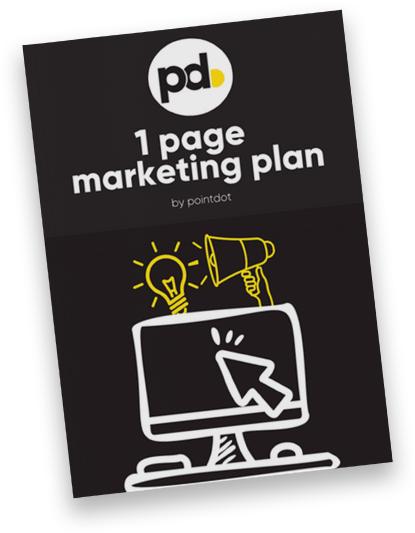
The Power Of Personalization: How To Craft Targeted Marketing Campaigns
In the early days of marketing, generic mass messages were the norm. Strategies were built around casting a wide net to catch as many potential customers as possible. But as markets evolved, so did the understanding of the consumer.
Times have changed, and now it’s all about the individual consumer. Personalisation is a strategy that targets customers’ unique needs and wants, creating a tailored and specific connection. If businesses want to stay ahead in the current competitive landscape, targeted marketing campaigns are not just a trend but a necessity.
Here’s a detailed look into how to craft targeted marketing campaigns and utilise the power of personalisation:
1. Audience Segmentation
Segmentation of your audience is all about understanding who your customers are. By dividing your customer base into specific groups based on characteristics like demographics, psychographics, and buying behaviours, you can create marketing strategies tailored to each segment. This makes your marketing efforts more targeted and helps deliver the right content to the right people.
The process can be simple and manageable. Analysing age, location, interests, and purchasing habits can provide insights into customer preferences. This information allows businesses to craft messages and offers that resonate with different consumer groups.
The advantages are significant, from increased engagement and loyalty to a noticeable boost in sales. In a world where consumers are flooded with generic advertisements, precise audience segmentation can be a game-changer.
2. Dynamic Content Creation
Dynamic content creation takes personalisation to the next level by tailoring content to individual user preferences. Whether through emails, websites, or advertisements, creating content that adapts to the user’s behaviour and interaction ensures a unique and engaging experience. Netflix’s tailored recommendations and Amazon’s customised user interfaces are good examples of how content is created and shared with a personalised touch.
Utilising tools that assist in creating dynamic content is no longer a field for experts alone. They help small businesses craft unique customer experiences. The results are clear: more engagement, better customer satisfaction, and improved conversion rates. By embracing dynamic content, brands can foster a personal and genuine connection.
3. Personalised Email Marketing
Email marketing has long been a staple in digital marketing, but the introduction of personalisation has changed the game. Personalised emails, addressing the recipient’s preferences or recent interactions with the brand, are more effective than generic ones. It’s all about making the customer feel special and valued, which increases the likelihood of opening and engaging with the email.
Tips for crafting effective personalised email campaigns are readily available, and often it’s as simple as starting with the recipient’s name. Cases like Coca-Cola’s ‘Share a Coke’ campaign illustrate the incredible success that can come from understanding and engaging with customers personally. Investing in personalised email marketing boosts conversion rates and fosters a connection that encourages ongoing customer loyalty.
4. Behaviour-Triggered Messaging
Understanding user behaviour and set triggers accordingly is a strategy that’s gaining traction. By recognising how customers behave online, triggers can be set for specific actions, engaging customers at the right moment. Examples include cart abandonment reminders or product recommendations based on browsing history. It’s targeted, it’s timely, and it works.
The return on investment for behaviour-triggered messaging is seen in increased engagement and conversions. Companies implementing these strategies find that connecting with customers at key moments leads to more meaningful interactions and, ultimately, more sales. Whether it’s a follow-up email after an abandoned cart or a special offer based on past purchases, behaviour-triggered messaging can be a highly effective tool in a personalised marketing arsenal.
5. Customised Product Recommendations
The power of customised product recommendations lies in using algorithms and data analysis. By taking information about customer behaviour and preferences, algorithms can generate product recommendations that feel both personal and relevant. E-commerce giants like Amazon have leveraged this effectively, turning browsing into buying by providing timely and tailored suggestions.
The importance of these recommendations being relevant and timely must be considered. They need to feel natural and authentic, reflecting the individual preferences and needs of the customer. Success stories abound in online retail, showing how leveraging customised product recommendations can drive sales and enhance the customer’s overall shopping experience.

6. Geo-Targeting And Location-Based Offers
Geo-targeting is about using location data to provide timely offers and information. By understanding where a customer is at a given moment, businesses can offer incentives and advertisements that are immediately relevant. Brands like Starbucks have used this strategy to send offers to customers near their stores, turning proximity into an opportunity for engagement.
Using geo-targeting effectively goes beyond merely sending offers based on location. It’s about understanding the context, the customer’s needs, and how location-based information can enhance their experience with the brand.
The real-world application of geo-targeting shows how it can boost local sales and create immediate and personal connections. Whether through apps or targeted online ads, geo-targeting and location-based offers can be essential in crafting targeted marketing campaigns.
Conclusion
The power of personalisation in marketing is undeniable. By embracing strategies such as audience segmentation, dynamic content creation, and geo-targeting, businesses can create connections with customers that feel genuine and tailored.
These targeted approaches enhance customer engagement and increase conversion rates and sales. In a world where consumers crave authenticity, investing in targeted marketing campaigns is not just a trend but a vital tool for building lasting relationships.

1 page marketing plan.
Since 2016, pointdot has grown by adopting the same marketing principles in this 1-page plan, into our own agency and business. We have grown from a 2-person team, to a team of 11 super talented marketers. Download your free copy of this brilliant 1-page marketing plan and begin growing your business!

